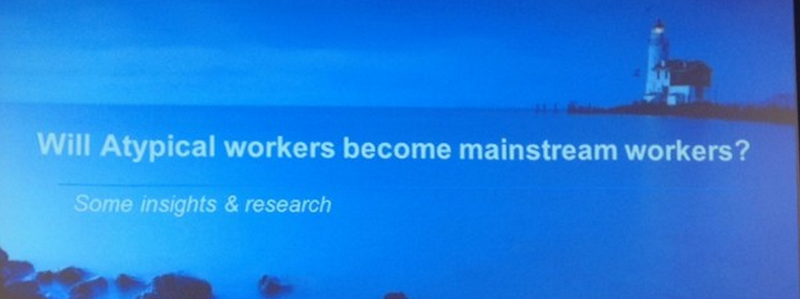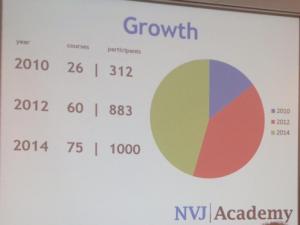Workshop: Developing services for atypical workers

A workshop on atypical workers organised by the International Federation of Actors (FIA) in cooperation with the Dutch actors’ union (FNV KIEM) within the joint project with the European Federation of Journalists (EFJ), International Federation of Musicians (FIM) and UNI-MEI took place in Amsterdam on 20 May. The participants, union leaders from the creative and media sector, discussed the impact of the changing landscape for workers and the impact on their working conditions and union services across the European Union.
 Yvonne Dankfurt from the EFJ affiliate in the Netherlands(Nederlandse Vereniging van Journalisten – NVJ), outlined the programmes offered by NVJ Academy to all journalists including a growing number of freelances. The courses offered by the NVJ cover entrepreneurship and skills for the converging sector. Other services offered to members by different cultural unions are: public liability insurances, legal assistance tax guide for freelances and other benefits. Such services are more labour intensive than the traditional collective bargaining, which of course continues to be a major work of the unions.
Yvonne Dankfurt from the EFJ affiliate in the Netherlands(Nederlandse Vereniging van Journalisten – NVJ), outlined the programmes offered by NVJ Academy to all journalists including a growing number of freelances. The courses offered by the NVJ cover entrepreneurship and skills for the converging sector. Other services offered to members by different cultural unions are: public liability insurances, legal assistance tax guide for freelances and other benefits. Such services are more labour intensive than the traditional collective bargaining, which of course continues to be a major work of the unions.
@nvj academy is growing servicing journalists in quality, innovation, sustainable employment says @yvonnedankfort #atypical work @EFJEUROPE
— Renate Schroeder (@renatemargot) May 20, 2015
A big challenge in the future will be to create an identity which is likely to be more along the line of different professions than the concept of worker.
A special presentation by the Dutch union FNV KIEM on the role of trade unions in the creative industry gave some interesting insights and ideas. What should a union offer to a workforce increasingly working as freelances and self-employed? What are the winning models? How can unions attract people in new occupations?
A survey conducted by the FNV concluded that young professionals in the creative industry ask for:
- Lobbying
- Master classes
- Knowledge on what is going on globally- international cooperation and transfer of knowledge
- Legal assistance in contracts
- Digital services
In the Netherlands, the unions are seen as traditional and bureaucratic institutions but also reliable and social organisations. An attractive union should be modern, inspirational and professional.
Caspar de Kiefte (FNV-KIEM) said that people are more interested in the future of their profession than in collective agreements. “If you want to create a network you first have to give, it will take a long time to pay back,” he concluded.
Fundamental rights for "atypical" workers are engrained in DNA of trade union work says Pascale Charhon. @EFJEUROPE
— Renate Schroeder (@renatemargot) May 20, 2015
Pascale Charhon, the expert of the project and author of the a handbook that will collect best practices and useful information of this two year project funded by the European Commission, said one of the many challenges in the future will be how to have a “collective identity” with the increasing individualisation of work and services.
P. Charhon: Principle of non-discrimination common threat in EU instruments on 'regulating' atypical work forms. @EFJEUROPE @FIM_live @fia
— Renate Schroeder (@renatemargot) May 20, 2015
Photo : Renate Schroeder / EFJ






